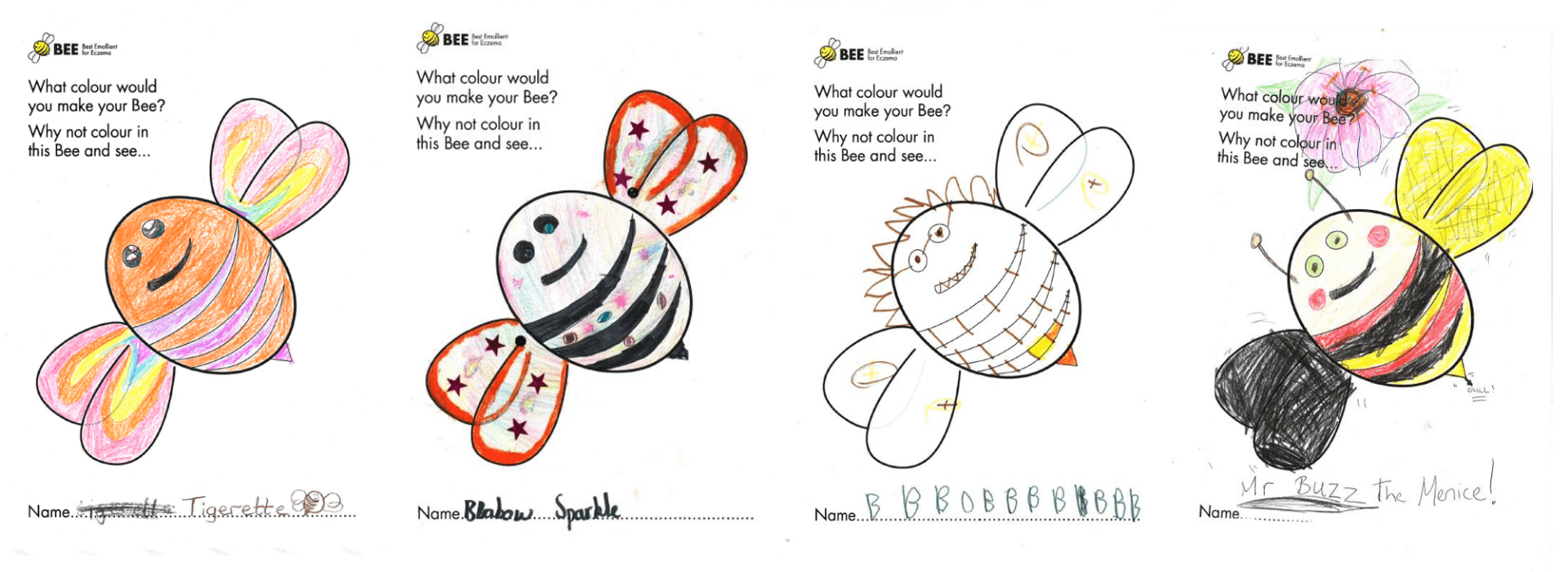By Dr Eileen Sutton, Research Fellow and Trial Coordinator – BEE Study, Centre for Academic Primary Care, University of Bristol
Qualitative research in trials
Many clinical trials now include qualitative research methods – which can include interviews, focus groups, or observations – alongside clinical and survey data collection. These kinds of research methods can be used to help the design of trials or to help us understand what is going on when a treatment or service is delivered in a clinical trial. For example, we can interview research participants to find out more about how they have used or experienced a treatment, in much more detail than we could capture in a survey. Combining different research methods can help researchers to get a more complete picture.
Our research
Around 20% of children in the UK experience eczema, which is characterised by dry, itchy skin. Eczema can be mild or more severe and can cause considerable distress for children and families. Emollients, commonly known as moisturisers, are the main treatment for eczema, but we currently don’t know whether one moisturiser is any better than another. Finding the right moisturiser can often involve a lengthy process of trial and error, resulting in multiple GP appointments and frustration all round.
Funded by the National Institute for Health Research (NIHR) and independent of the manufacturers of moisturisers, the BEE Study is a randomised controlled trial of four different types of moisturisers – lotions, creams, gels or ointments – for eczema. BEE aims to identify which type of moisturisers are more effective and acceptable, to provide GPs and patients with more reliable information as a starting-point for the treatment of eczema.
Interviews with parents and children
Around 520 families will be participating in the trial, which involves skin assessments at the start and at 16 weeks, as well as completing weekly surveys on eczema symptoms and moisturiser use. But we are also inviting around 50 families to take part in interviews so that we can find out more about their opinions and experiences. The children participating in BEE can be aged from 6 months to 12 years old, and some older children are taking part in the interviews alongside their parents. It’s really helpful to try to get the children’s views as they can have a big impact on whether or not the moisturisers are used regularly.
It’s the first time that I have been interviewing children alongside their parents and although it has been challenging at times, I have to say I am really enjoy speaking with them and their parents. It’s especially interesting when the parent and child have different views, or to hear scenarios where, for example, a parent believes that the study moisturiser has improved their child’s eczema, but they have swapped to another as their two-year-old wasn’t happy having it applied. It’s also amusing to hear their graphic descriptions of moisturisers which have included: “chip fat”, “gloss paint” and my current favourite “bird poo”!
The information from these interviews will complement all the quantitative data we are collecting and help us to better understand which types of moisturisers for eczema patients prefer and why.

Patient & Public Involvement (PPI) in BEE
We couldn’t do the research without the help of our PPI contributors who have been involved with BEE right from the start. They helped to frame the research question, contributing to the study design and funding application. Our BEE parent group, who all have children with eczema, have commented on study materials such as the parent and child information sheets. We hold regular meetings with them for feedback on work in progress and we can also call on them if we have any particular issues we need help with, for example, getting advice on how to tweak the design of the study survey. In the longer term we are planning to involve them in publicising the study findings.
Producing clinically relevant and useful research
By including the views and experiences of parents and children, and by involving people with personal experience of eczema in their family in the design and day-to-day running of the study, we will produce clinically useful and relevant research. In the future the findings from BEE will help families and GPs when they are making decisions about which moisturisers to use for the treatment of eczema.
A huge thank you to all the families who are taking their time to participate in BEE and also to our fantastic PPI contributors.
Recruitment is on-going and we expect to publish our findings in 2021.
Further information
Visit the study website.
Follow the BEE Study on Twitter: @bee_study
Funding acknowledgement and disclaimer
This study is funded by the National Institute for Health Research (NIHR) Health Technology Assessment programme (Ref: 15/130/07). The views expressed are those of the author and not necessarily those of the NIHR or the Department of Health and Social Care.

